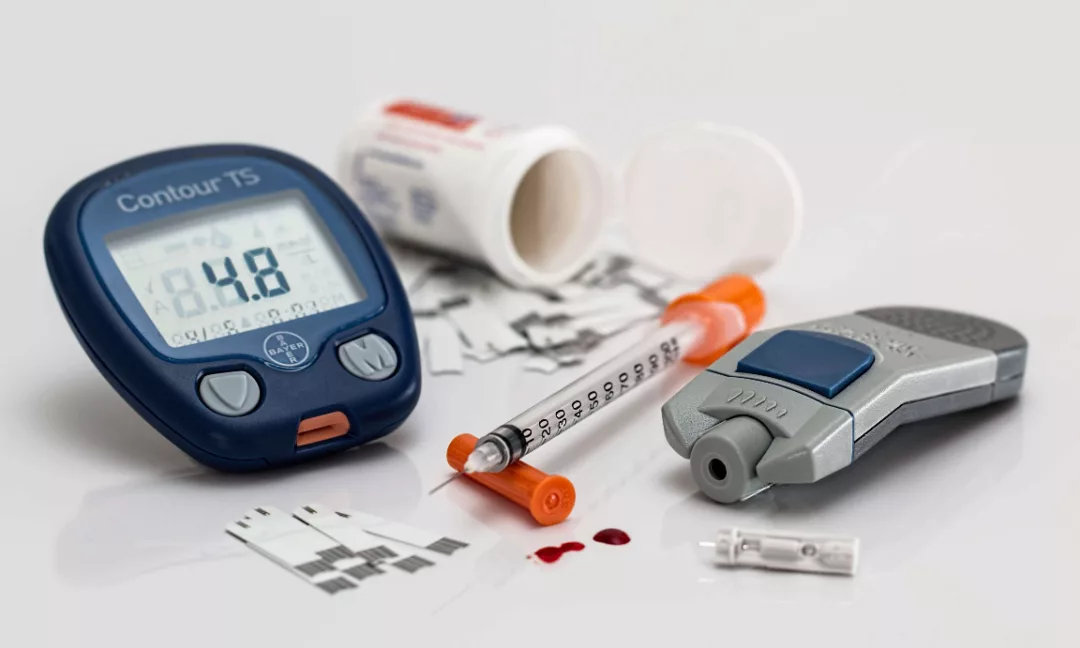We heard you loved our newsletter feature on stabilizing blood sugar, complete with recommendations from our partners at Metagenics (e.g. Ultra Glucose Control), so we wanted to give you a little extra taste (pun intended). Physio Logic’s Clinical Nutritionist, Michelle Miller, MSACN; and Nutritional Educator & Registered Dietitian, Rachel Naar, RD, provide 5 easy tips to maintain normal blood sugar.

Why Is Maintaining Normal Blood Sugar So Important?
● If we have too much, we’re unable to get it out of our blood and into our cells for energy
○ Chronic high blood sugar (called hyperglycemia) can lead to insulin resistance, type 2 diabetes, and issues with just about every organ in our body—NOT FUN!
● If we have too little, our body snags it from less desirable places (like protein stores!)
○ Low blood sugar (called hypoglycemia) produces that hangry monster, you know, the one that’s shaky, dizzy, forgetful, sweaty, and oh.. HUNGRY!
5 Tips to Maintain Normal Blood Sugar
1. Eat every 3-4 hours throughout the day
Call it meals, call it snacks, call it macks, we don’t care. Going long times without eating can give you that one-way stop to hangry town. In addition, prolonged fasting can lead to chronic overconsumption. Find your middle ground. Don’t forget, the restriction reinforces the binge!
2. Minimize sugar sweetened beverages (and added sugars in general!)
All the calories without the nutrient content, no thanks. A 12oz can of coke has 39g of added sugar! The daily recommendation is about 25g, but less the better. This isn’t to say never indulge, it’s that mindfulness that everyone’s talking about – balance.
3. Ditch the juice cleanse, eat the fruit
The fiber in the fruit allows for a delayed gastric emptying, resulting in you feeling fuller longer. Plus, how many apples do you think it takes to get to that cup of apple juice? It’s around 6. You’d likely not eat 6 apples in one sitting. The fiber helps promote regularity with bowel movements and strengthens the walls of your intestine, as well as slows down the rate at which sugar is absorbed.
4. Focus on complex carbs
Quality (whole grains, starchy vegetables vs. refined) and quantity (portion control of carbs) are super important here. Good sources of complex carbs include: brown rice, chickpeas, lentils, steel-cut oatmeal, 100% whole wheat bread/pasta, quinoa, sweet potatoes.
5. Move it
Being physically active can help to lower and regulate your blood sugar! Aim to move it for at least 30 minutes per day. Exercise, or movement, helps to clear sugar out of the blood stream by shuttling it into muscle cells, where you can use and burn the sugar for energy.
Here are some additional information and strategies to help you manage your blood sugar effectively:
Control Portion Sizes: Portion control plays a significant role in managing blood sugar levels. Be mindful of the quantity of food you consume, particularly when it comes to carbohydrates. Using smaller plates and bowls can help control portion sizes and prevent overeating. Additionally, consider consulting a registered dietitian who can provide personalized guidance on portion control based on your individual needs.
Regular Physical Activity: Engaging in regular physical activity is beneficial for maintaining normal blood sugar levels. Exercise helps your body utilize glucose more effectively and can improve insulin sensitivity. Aim for at least 150 minutes of moderate-intensity aerobic exercise per week, along with strength training exercises to build muscle mass.
Stay Hydrated: Drinking an adequate amount of water is essential for blood sugar management. Water helps your body regulate blood sugar levels and prevents dehydration, which can affect blood sugar control. Aim to drink at least 8 cups (64 ounces) of water per day, and adjust your intake based on your individual needs and activity level.
Manage Stress: Chronic stress can affect sugar levels. Find healthy ways to manage stress, such as practicing relaxation techniques, engaging in hobbies, or seeking support from friends and family. Engaging in stress-reducing activities can help promote stable blood sugar control.
Regular Monitoring: Regularly monitoring your blood sugar levels can provide valuable insights into how your body responds to different foods and activities. Talk to your healthcare provider about recommended methods for monitoring, such as self-monitoring at home or periodic lab tests. Monitoring your sugar levels allows you to make informed decisions about your diet and lifestyle to maintain optimal blood sugar control.
Remember to consult with a healthcare professional or a registered dietitian for personalized advice and guidance tailored to your specific health conditions and needs. They can provide individualized recommendations and support in managing your sugar levels effectively.
Interested in learning more about maintaining normal blood sugar? Schedule an appointment with our Clinical Nutritionist Michelle Miller, MSACN, today. Fill out the form below to get started. Visit our Integrative Nutrition Page to learn more!
Our experts from Physiologic NYC will guide you to the ideal treatments for your needs
